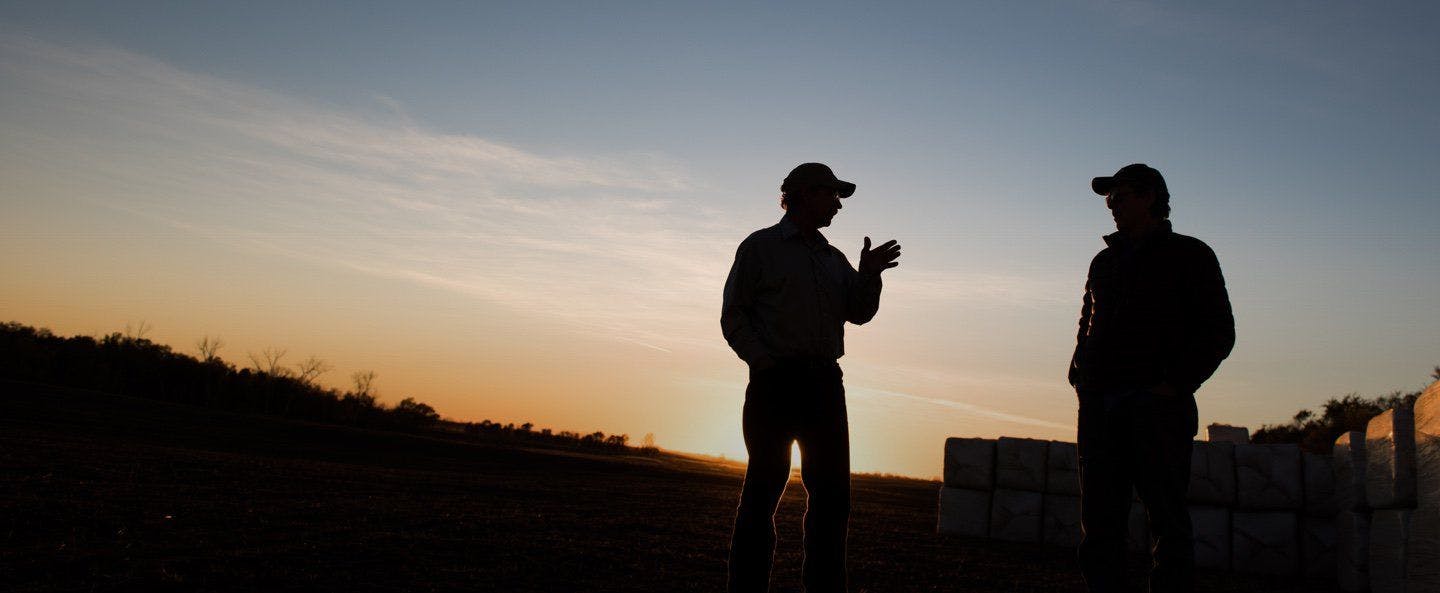
We export high-quality organic dairy ingredients, eggs and meat to more than 20 countries worldwide. If you’re a food or beverage manufacturer interested in exporting our organic ingredients, please high-quality organic dairy ingredients, eggs and meat to more than 20 countries worldwide. If you’re a food or beverage manufacturer interested in exporting our organic ingredients, please contact us. We’d love to discuss your options!
A study by Washington State University confirmed that Organic Valley Pasture-Raised Whole Milk is nutritionally superior to natural/conventional whole milk. Organic Valley Pasture-Raised Whole Milk contains higher levels of the heart-healthy fatty acids the body needs to stay balanced:
- 62% higher omega-3 and a more healthful ratio of essential fatty acids omega-6: omega-3
- 18% higher conjugated linoleic acid (CLA)
Drinking organically produced milk offers optimal nutritional value, reduces exposure to synthetic chemicals and hormones, and supports healthier food production in our country. Milk is a good source of calcium, phosphorus, riboflavin and protein. Up to 78 % of Americans are believed to be calcium deficient— organic milk from pasture - fed cows is an excellent source of easily absorbed calcium.Lactose - intolerant individuals can enjoy the health benefits of drinking real organic milk from pasture - fed cows and don 't need to seek out dairy alternatives.
Organic Valley never uses genetically modified organisms (GMOs) or ingredients from such organisms in any of our products. This includes the feed that our animals receive. Organic Valley will never knowingly or willingly utilize GMOs in any of our products, processes or feed.
Organic Valley/Prairie has an Animal Wellness Task Force that routinely reviews and refines our humane treatment guidelines. Organic Valley/Prairie continues to urge the USDA to strengthen their National Organic Program humane animal treatment standards.
Organic production practices are both Earth and animal friendly. Input from concerned consumers, the American Humane Society (AHA) and the Humane Society of the United States (HSUS) was reviewed and used when the National Organic Standards for Animal Care were created. Organic Valley farmers go further because:
- We farm in harmony with nature
- We provide conditions for optimal production and well-being without the use of synthetic hormones
- We practice holistic and preventative animal health care
- Our farms are appropriate in scale
The farmer-owners of Organic Valley are very proud of their reputation for high-quality products and have pioneered one of the strictest standards in the industry to ensure that high-quality standards are upheld. We take our responsibility to provide high-quality products very seriously and know that safety and integrity in how we produce our food are essential to the optimum health of our consumers and the planet.
Organic Valley Family of Farms™ is the largest organic farmer-owned cooperative in North America. CROPP stands for “Cooperative Regions of Organic Producer Pools” and is the name of the cooperative that our farmers are members and owners of. Being a cooperative means that the farm families that produce Organic Valley's organic dairy products, juice, eggs, meat, soy and produce are the direct owners of the business. Organic Valley & Organic Prairie are the brand names that these products are then marketed and sold under. From the time we began with seven Wisconsin family farms to the present with over 2,000 members in regions across the country, our farmers have been directly involved in every decision we make. Over the years, we've learned a lot about how to organize, govern and make decisions for ourselves.
Pasture-raised animals receive a significant portion of their nutrition from organically managed pasture and stored dried forages. Unlike 100% grass-fed cows, pasture-raised cows may receive supplemental organic grains, both during the grazing season and into winter months. Our co-op wide pasture requirements specify that all cows must have a minimum of 120 days on pasture during the grazing season, and they must have outdoor access to pasture year-round. They may be brought indoors because of severe weather and for the daily milking. Supplemental organic grains can include any of the following: corn, soy, oats, barley, triticale and other small grains. Animals also receive necessary mineral supplements that sometimes include noniodized salt.
Like any lactating mammal, humans included, a cow's nutritional and energy needs greatly increase when she produces milk. Our 100% grass-fed cows are provided with the highest-quality fresh organic pasture grasses and legumes (such as alfalfa and clover) in summer, dried grasses and legumes in the winter, and supplements in the form of minerals, vitamins and molasses year-round. Molasses is produced by crushing the leaves of cane grass These cows' milk goes into our exceptional-quality Grassmilk® brand milk, cheese and yogurt products.
Grassmilk® is artisan-quality milk that comes from cows that are 100% grass - fed and whose diets are never supplemented with grains or soybeans. This premium milk comes from the Organic Valley farms of Northern California's Humboldt County, the Midwest and Northeast and is produced in small batches to be of the highest artisanal quality.
All Organic Valley milk varieties are certified kosher. All of the products that are kosher certified will have the designated symbol on the packaging. The symbol consists of the letter 'U' with a circle around it. Some products are marked with the kosher symbol (letter 'U 'with a circle around it) and may be followed with the letter 'D.' This means that although there isn't any dairy in that product itself, nor it is made on equipment that also produces dairy products. Each plant follows Good Manufacturing Practices and has strict cleaning procedures between production runs.
Organic Valley Nonfat Dry Milk Powder is a convenient organic option for baking, camping, travel or emergency preparedness. Because our nonfat dairy milk is processed with a low heat method, it retains the highest nutritional profile and reconstitutes in liquid as readily as possible without being an instant powder. Our powder is delicious and easy to reconstitute following the directions. We do not fortify our powdered milk with vitamins A or D above what may naturally occur. There is less than 1.25% fat in Organic Valley Nonfat Dry Milk. Our milk powder may be used in either the powder or liquid form wherever you would use milk, and the reconstitute can be stored in the refrigerator and used for up to five days.
Organic Valley Buttermilk Blend powder is made by carefully mixing real buttermilk from our cultured butter with freshly skimmed milk and then drying the blend using a low - heat process. The result is a convenient addition to your best buttermilk recipes. In fact, we formulated this buttermilk blend specifically for baking and cooking To reconstitute into buttermilk, simply add 3 tablespoons of Buttermilk Blend to 1 cup of cold water.Shake or stir to mix. While the milk that we begin our butter - making process with is pasteurized, it has not been homogenized, and since the fat was not reduced in the milk to begin with, we don 't have to add vitamins A and D. For optimal shelf life, we suggest you do NOT store the powder in the refrigerator, but rather keep it in a cool, dry place.
For those who are looking to build muscle mass, the difference between the two proteins is the amount of time it takes for the body to metabolize the protein. Casein is a slow-acting protein, and whey is a fast-acting protein. It takes the body three to four hours to metabolize casein protein, whereas whey protein can be metabolized in 20 minutes. Both proteins are desirable for building muscle mass.
We use plant-based, microbial enzymes in most of our cheeses. Plant-based, microbial enzymes are produced by a controlled fermentation process. An animal-derived lipase enzyme is used in two varieties of our cheeses: Blue Cheese and Romano.
Cheese is a good source of protein and a good source of calcium. The organic milk we use to make our Organic Valley cheeses comes from pasture-raised cows. Consuming organic cheese minimizes your risk of exposure to antibiotics, toxic pesticides, synthetic hormones and genetically modified organisms (GMOs). For individuals and families seeking high nutritional value and reduced risk of exposure to the toxins associated with factory farming practices, organic cheese is a healthy option.
- Organic Valley Cheese is crafted from milk produced by our cooperative of family farmers working in harmony with nature.
- All of our family farms are USDA Certified Organic, which includes a yearly compliance audit conducted by third-party, accredited organic certifiers.
- Certified organic farms are required to follow the strict production rules of the USDA’s National Organic Standards (www.ams.usda.gov/nop).
- Organic farmers do not use antibiotics, synthetic hormones or toxic pesticides in their organic production.
- In the event of a life-threatening situation, antibiotics or other prohibited medications will be given to an animal. Those animals must then be permanently removed from organic production.
- To become certified organic, the pasture and the land on which it is grown cannot be treated with synthetic fertilizers, pesticides, herbicides or GMOs for a minimum of three years.
- Organic feed cannot contain GMOs or products from GMO sources.
- Every truckload of Organic Valley milk is tested for antibiotics, temperature and bacteria.
All the processing facilities we partner with are thoroughly inspected to verify that the organic product is never mixed with conventional products or nonapproved ingredients.
Ghee is clarified butter that has been gently simmered longer than regular clarified butter, resulting in a high butterfat content (99.6%) and nearly eliminating the moisture content, which gives ghee a long shelf life and rich, yellow color. Its unique nutty, caramelized flavor is the result of browning the milk solids before filtering them out. Subtle color variations in the ghee are due to the seasonal variations in our cows’ diets. Ghee is salt- , lactose- and casein- free and certified kosher. Ghee is excellent for sautéing at high heats because the exceptionally low moisture content means less splatter and a high smoke point.
Consuming organic butter reduces your exposure to pesticide residues and environmental toxins. Animals naturally store toxins in their fat cells, increasing the risk of these contaminants finding their way into products we rely on in our diet, such as milk and butter. Children are especially vulnerable to pesticide exposure, and consuming organic foods can greatly reduce this risk. Organic farmers do not use antibiotics, synthetic hormones, toxic pesticides or genetically modified organisms (GMOs) on their farms, and all animal feed and pasture must be certified organic, which includes being non-GMO.
Organic Valley crafts two varieties of organic butter to accommodate various palates and cooking/baking needs. We do not use any added coloring in our butters. The light-yellow color of our butter is caused by the natural carotene in the pasture grasses that our cows eat. This is why Organic Valley Butter varies in color from season to season. In the summer, when our cows primarily graze organic pastures, the milk contains more carotene and tends to be brighter yellow. In the winter, when the cows eat more dried, stored organic forage, the milk contains less carotene, resulting in lighter-colored butter.
Organic Valley's independent family farms are clustered in regions across the country: Northeast Pastures, New York Fresh Pastures, Heartland Pastures, Rocky Mountain Pastures, Southwest Pastures, California Pastures and Northwest Pastures. We package and deliver their milk to the nearest regional markets to ensure value and freshness, reducing the food miles that milk has to go before it gets to our customers. Supporting organic dairy farms regionally gives our customers the fresh, delicious, high-quality product they enjoy. Regional production builds local economies and allows rural communities to protect the environment in which their children are raised. Organic dairy farmers do not use any chemical pesticides or fertilizers on their land. This protects our soil, water and air resources and also protects the health of people and wildlife.


